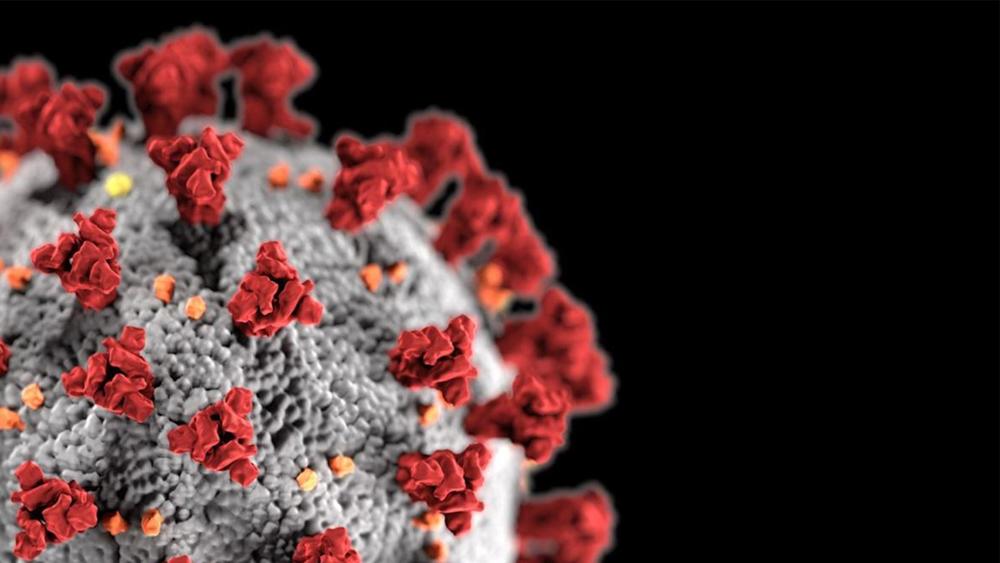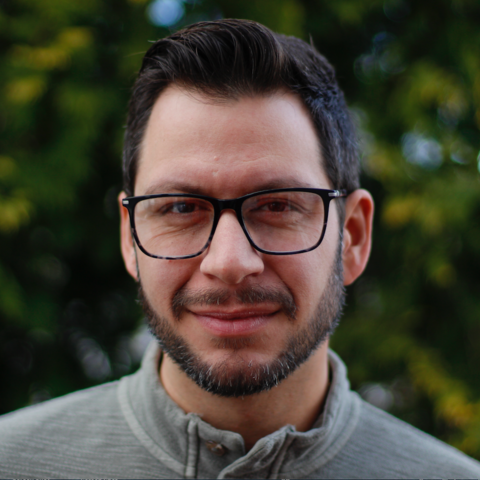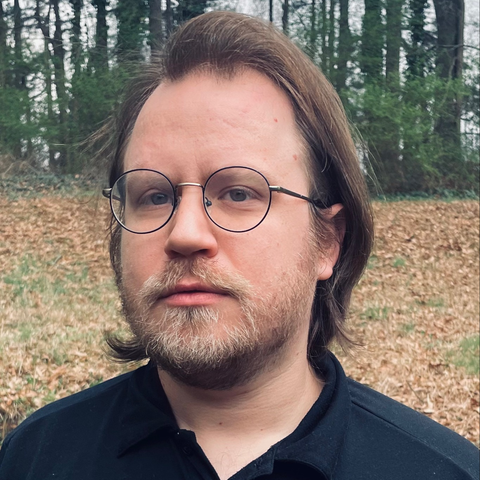
Section Branding
Header Content
Georgia Today: Some charges dismissed in election case; Biden and Trump win primaries; Sci-fi writer
Primary Content
On the Wednesday March 13th edition of Georgia Today: A judge overseeing Georgia's 2020 election interference case dismisses some of the charges; President Joe Biden and former President Donald Trump win their Georgia primaries; And we'll talk to the Georgia author of new science fiction novel that examines the divide between urban and rural life.

Peter Biello: Welcome to the Georgia Today podcast from GPB News. Today is Wednesday, March 13th. I'm Peter Biello. On today's episode, a judge overseeing Georgia's 2020 election interference case dismisses some of the charges. Georgia puts President Biden over the top in delegates needed to secure his party's nomination. And we'll talk to the Georgia author of a new novel that examines the divide between urban and rural life. These stories and more are coming up on this edition of Georgia Today.
Story 1:
Peter Biello: The judge overseeing Georgia's 2020 election interference case has dismissed some of the charges in the state's sprawling prosecution. Fulton County Superior Court Judge Scott McAfee ordered six counts removed today from the indictment, including three against former President Donald Trump. McAfee said the courts didn't allege sufficient detail about the violations. Georgia State University law professor Anthony Michael Kreiss says that means Fulton County District Attorney Fani Willis could seek a new indictment on the thrown out charges.
Anthony Michael Kreiss: I think it's a hiccup for the DA, but it's nothing that that she can't remedy fairly quickly if she gets a couple of constitutional experts on her team to read these indictments.
Peter Biello: One of the dismissed charges stems from a phone call Trump made to Georgia Secretary of State Brad Raffensperger after the election. Other charges, including ten facing Trump, were left in place.
Story 2:
Peter Biello: President Joe Biden secured the delegates he needed for the Democratic Party's nomination after winning the Georgia Democratic primary yesterday. Former President Donald Trump won Georgia's Republican primary and secured the delegates he needed for his party's nomination after also winning primaries in Mississippi and Washington. Secretary of State Brad Raffensperger said about 11% of registered voters voted in the primary, with more than 700,000 voters casting ballots.

Story 3:
Peter Biello: A Senate committee passed a bill that would ban puberty blockers for transgender minors, but allow exceptions for children using the blockers for other reasons. GPB's Sarah Kallis has the latest.
Sarah Kallis: House Bill 1170, passed the House as a bill aiming to place opioid antagonists in more state buildings. Senators added an amendment in committee that would ban puberty blockers for those children receiving gender affirming care. Senator Ben Watson, who carried the bill in the Senate, said the House sponsor, Lee Hawkins, agreed to the change.
Lee Hawkins: But to make irreversible changes and potential side effects and deleterious problems relating to the puberty blockers outweighs any potential benefit.
Sarah Kallis: Senator Kim Jackson does not support the amendment to HB 1170.
Kim Jackson: It was a great bill that really could have saved lots of Georgians. And now we've attached another bill that undoubtedly will hurt.
Sarah Kallis: HB 1170 has to pass the full Senate and go back to the House before it reaches Governor Kemp's desk. For GPB News, I'm Sarah Kallis at the state Capitol.
Story 4:
Peter Biello: The brother of the man accused of killing Georgia nursing student Laken Riley has been indicted. Diego Ibarra faces one felony count stemming from his alleged possession of a counterfeit immigration document. That's according to the U.S. Attorney's Office for the Middle District of Georgia. Prosecutors say Ibarra presented a fake permanent foreign resident ID card during questioning by Athens law enforcement about Riley's death. If convicted, Diego Ibarra could face up to a decade in prison. His brother, Jose Ibarra, is currently jail without bond. Charged with Riley's murder.
Story 5:
Peter Biello: Black business leaders gathered in Atlanta this week to unveil the Black Wall Street ticker. It's a way to track spending within the black community. GPB's Amanda Andrews has more.
Amanda Andrews: The Digital Tracker is an effort by the spending platform friends of the movement to bring economic justice to the black community. To use it, people create an account called a voter Wallet, where they can access a database of businesses to support. The ticker tracks money spent by businesses, corporations and individuals in real time. CEO Charles Walker Jr says it will hold organizations accountable who claim to support diverse businesses.
Charles Walker Jr: There was a 7,000% increase in minority business searches after George Floyd. There was a 98% decrease. And why do we start off strong and get tired very quickly? The technology exists and no more excuses.
Amanda Andrews: The ticker is available online. For GPB News, I'm Amanda Andrews.
Story 6:
Peter Biello: The world's largest wood pellet manufacturer, with the plants in Waycross and a marine terminal in Savannah, has declared bankruptcy. Maryland based Invivo said yesterday it's entered a restructuring agreement to reduce its debt by about $1 billion. Environmental groups hailed the announcement after long accusing the company of profiting from excessive carbon emissions and pollution. And Viva says the agreement will help the company position itself for long term success.

Story 7:
Peter Biello: Cases of Covid 19 have declined significantly as winter moves into spring. State Epidemiologist Doctor Sherry Drenzek told members of the state Board of Public Health yesterday the vast majority of patients hospitalized with the virus had not been vaccinated. Yesterday marked the fourth anniversary of the first reported death from Covid 19 in Georgia. Drenzek says the state is in a remarkably different place from back then.
Sherry Drenzek: 80% of the population had no immunity. In January 2021 and three years later, we've got almost everyone, you know, 98% of the population does have immunity against Covid.
Peter Biello: Drenzek says immunity doesn't stop infection, but reduces severity of symptoms. She also reported influenza cases peaked in January, while RSV cases peaked in October.
Peter Biello: Macon-Bibb County opened the new city built 12,000 seat amphitheater last night. The show was a test run for the venue, officially opening later this year. An audience of mostly city employees and invited guests attended the first concert. GPB's Grant Blankenship spoke during the soundcheck to one performer, Charles Davis of the Macon Music Review.
Charles Davis (location audio): Mic check one two, one two. Check check check check. Hello.
Charles Davis: The Macon Music Review. The way it has been described is as A preservation band for Macon music.
MUSIC: Charles Davis and his band
Charles Davis: We perform every Wednesday night at Grant's Lounge at 8:00. Doing. Like I said, Otis Redding, Little Richard, James Brown, the Allman Brothers Band, and all the music that was influenced here in Macon, Georgia. For what this amphitheater was going to become and what it's going to mean to the community. The fact that Macon artists are the first ones to perform on it means something. You'll have a ton of great artists are going to come through here, but it will always be said that the first people to ever play at the Atrium Health Amphitheater were Macon artists, so its a big thing.
MUSIC: Charles Davis and his band
Peter Biello: That was Charles Davis of the Macon Music Review before the first concert at the new Atrium Health Amphitheater in Macon.
Story 8:
Peter Biello: And Atlanta's Fox Theater is rebranding and expanding its grant program to preserve community theaters across the state. Theater officials said yesterday the Fox Theater Institute is now Fox Gives. It also announced its largest ever multi-year donation, a half million dollars, to the Hart Community Theater in northeast Georgia's Hart County.

Story 9:
Peter Biello: Imagine you look up at the sky and you see a giant object hurtling toward Earth. Collision is inevitable, and you assume human civilization will soon go the way of the dinosaurs. But what hits Earth is not a meteor, but a body of a giant alien made of crystals. And it doesn't slam into Earth, but it sets down softly in a small Nebraska town. Now imagine that you're the local sheriff of that town, and suddenly that town is not so sleepy anymore. That's the premise of the new novel Godfall, by Atlanta author Van Jensen, who joins me now in the studio. Welcome.
Van Jensen: Thanks so much for having me.
Peter Biello: So this is I wouldn't say a sci fi novel, but it's got elements of sci fi. It's not a purely whodunnit, though. It's got a murder mystery. And it's it's not necessarily a romance, although there is some romance in it. So it encompasses a lot. But let's start with that central premise that the giant alien made of crystals fallen out of the sky, landing softly in Nebraska. How did you come up with that premise?
Van Jensen: I kind of find ideas anywhere, so I try to like I read a lot of nonfiction. I read the news. You know, I just I try to be, like, out in the world experiencing life, right? And then sometimes stuff just appears. And this was one of those I think I was, you know, like half asleep. And it was just this vision of a giant alien thing landing in western Nebraska and western Nebraska is where I grew up. So of course there's always a tether there. But this particular thing about it that I think made it so evocative, this vision, is that Nebraska is like the flattest place on Earth, a.
Peter Biello: Good place for a giant alien to land.
Van Jensen: Right, right. Like a big a big landing zone. But what I saw in my mind's eye is like this unbroken horizon that all of a sudden has this very artificial, very unnatural, very frightening, like mountain range. And the, you know, the plot, the story of it is, is just really was me like, thought experimenting like what would happen, where would this go? And and really what I think gave me the passion to keep going is it's very much based on my hometown and where I grew up and the experience of this place. And so I hadn't written about that place before.
Peter Biello: The town in this book, Little Springs, Nebraska, because this alien lands there, changes tremendously. I mean, we jump forward months after the alien lands, and there are all sorts of newcomers here. And the sheriff, your main focus of this book, David. Sheriff David, he starts to see people as people who've been here forever. And then the newcomers. Right. And that becomes kind of a divide in his head that creates the central theme here of otherness. Right. And I'm wondering if you could talk a little bit about, why that theme was important for you in this book?
Van Jensen: I'm a product of a small town. I love rural America. At the same time, I've lived in cities for effectively all of my adult life, and I love cities. But we're at a time, I think, in this country where those two sides do not interact with each other, or if they do, it's just like insults hurled each way, like, and, and I think there's a ton of misunderstanding, but mostly there's just no interaction. And so I just thought, would it be fascinating to write a book that's a murder mystery? But is also this like forced integration of urban and rural life, like these people having to figure out how to talk to each other, like how to because, I mean, life is life is hard. Like there are disagreements, but you can't do anything about that stuff unless you actually talk to each other.
Peter Biello: You've worn many hats over the years. You were a crime reporter at one point in your career. It shouldn't be terribly surprising, I think, that a former crime reporter would write about a law enforcement official. Were you thinking of folks in law enforcement that you met along the way, or were there other influences from your crime reporting days and writing this book?
Van Jensen: The biggest help, I think, in, in having done journalism is just like people always ask me how how to get over writer's block. And I'm like, why? I don't know, I just write, like I just sit down and do it. And like, that's a journalism training is like, you either write or you don't have a job anymore. So so I'm very grateful for for that experience. But really in a crime specifically, it was a a very trying experience. I was in little Rock, Arkansas. Little Rock is a shockingly violent city, to the point that there have been documentaries about how violent it is. So it was a really intense period of my life. It was not a job that I love because, you know, it's like my best day as a reporter is someone else's worst day.
Peter Biello: Which is something the reporter in this book says about.
Van Jensen: Right?
Peter Biello: Her job.
Van Jensen: Right. It's yeah. You know, like something horrific happens and and you get this amazing front page story and you feel great about, oh, I got on the front page and you're like, oh yeah. But like two people died. But with the police, you know, I definitely experienced like there are great police. There are people who really care, who really try hard, who are super invested in the community, who want to be good people there. There are struggles against, just like the system that they they work within, and they're also bad cops and they do incredible amounts of damage. And so I got to see all of that. And I think, I think really it's just knowing the way that police actually work like I always want. My writing to be believable and, you know, it's realistic enough. Like, again, this is a book with a giant dead alien. So.
Peter Biello: Oh, so that almost makes it more important for everything else to be exactly realistic.
Van Jensen: Yeah, yeah. So that was my goal. And you know the so David's character more than anything is based on my dad and my dad. He, you know, not a cop. He he's a dentist. He retired as a dentist from childhood, his dream. And he grew up in the same town. His dream was to be the dentist in this town. And then he grew up, and he did exactly that. And like, he loves this town like he wants it. I mean, his family has been part of it forever. He just he wants it to continue to be the thing that is. And he does, you know, just all these incredible things all the time to enrich the community around him. And, and so that was really the seed of like any time I was like, oh, what? Like, how would David look at this? Just like, okay, here, here's here's what my dad would do.
Peter Biello: Godfall is turning into a TV show. It is it's it's in the process. Can you tell us about what that's like, how you think this book is going to translate into a TV show?
Van Jensen: Yeah. I mean, it's it's been very, shocking and in the best way.
Peter Biello: And because Ron Howard is.
Van Jensen: Ron Howard is directing it, which is insane. Like, I mean, objectively insane. I mean, this is a small press book, right? The first agent that I gave it to, Literary Agent, just never read it. And so, you know, like, it's it's lived many lives and it's taken a long time to, to get out. And I mean, I, you know, I have someone I work with in LA who wanted to send it out to people. And I had no expectation. I mean, I've done that dance, right. And then all of a sudden it became this thing to where they're like multiple articles in the, the Hollywood trades about me and about the book, which is just mind blowing.
Peter Biello: Have you heard anything about what Ron Howard saw in this story that he wanted to bring to a visual audience?
Van Jensen: He saw all the stuff that I've talked about already, the stuff that I love about the book, the stuff that made me want to write the book. He said he always wanted to do sci fi and hasn't had the chance to do that. He's always wanted to do TV and hasn't really hasn't effectively done any TV. And then he just said, you know, I loved it. It exists in this rural American space in such a genuine way. And we just we don't see that on TV and in films. And also like, he loved that it has a lot of heart, like even though there's dark stuff that happens, I hope that it comes across that way. But I think it's a very hopeful book.
Peter Biello: Well, Van Jensen, thank you so much for speaking with me about your book. This is wonderful. I really appreciate it.
Van Jensen: Thank you for having me. Love it.
Peter Biello: And you can find a link to the video of my extended chat with Van Jensen at GPB.org/news.
Peter Biello: And that's all we've got for this edition of Georgia Today. Thank you so much for tuning in. If you want to learn more about any of these stories, visit GPB.org/news. And if you haven't subscribed to this podcast yet, I highly recommend it. We'll be back in your podcast feed tomorrow if you do, with all the top stories from Georgia, and if you've got feedback or know of a top story, let us know by email. The address is GeorgiaToday@GPB.org. I'm Peter Biello. Thanks again for listening. We'll see you tomorrow.
---
For more on these stories and more, go to GPB.org/news



